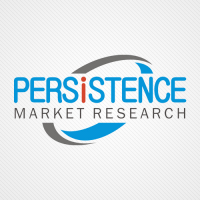Zinc Deficiency Treatment Market : Industry Players to Show High Growth Rate by 2017 – 2025
Mild zinc deficiency requires treatment with zinc supplements at 2-3 times the recommended dietary allowance (RDA) and moderate to severe zinc deficiency requires zinc supplements with 4-5 times the RDA and treatment is continued for at least 6 months.

New York, NY -- (SBWire) -- 08/11/2017 --Zinc is a micronutrient and essential trace element required for metabolism reactions that catalyze number of enzyme reactions, protein folding, gene expression etc. Deficiency of zinc may cause range of infectious diseases and other complications affecting almost every aspect of health such as delayed or retarded growth in children, hair loss, lack of cognitive function, reduced sense of taste and smell, loss of appetite, immunosuppression, anemia, night blindness, etc. Zinc deficiency may also cause deficiency of vitamin A as zinc is required for vitamin A absorption. Zinc deficiency is the fifth leading factor causing disease across the globe, and according to World Health Organization (WHO) 31% of the global population is experiencing zinc deficiency. Underdeveloped countries are facing major problem of death due to childhood diarrhea and pneumonia caused due to zinc deficiency. As per International Zinc Nutrition Consultative Group (IZiNCG) zinc deficiency is expected to cause 176,000 diarrhea deaths, 406,000 pneumonia deaths and 207,000 malaria deaths across the world Regions such as Africa, Middle East and South-East Asia are bearing high burden of zinc deficiency due to poor nutrition, lack of breastfeeding etc. Treatment of zinc deficiency mainly involves intake of zinc rich food and zinc supplements. Mild zinc deficiency requires treatment with zinc supplements at 2-3 times the recommended dietary allowance (RDA) and moderate to severe zinc deficiency requires zinc supplements with 4-5 times the RDA and treatment is continued for at least 6 months.
Oral repletion of zinc in the form of zinc acetate, zinc sulfate, zinc aspartate, zinc orotate and zinc gluconate, multivitamin supplements etc. and zinc supplements are available in the form of oral tablets capsules, syrups or intravenous solutions. National Institute of Health (NIH) recommends daily intake of 20-40 mg zinc for adults orally to avoid complications caused by zinc deficiency. High dose of zinc i.e. more than 50 mg per day is recommended to patients with severe zinc deficiency or patients with irreversible malabsorptive disorders. Intravenous administration of zinc is rarely recommended unless the patient is suffering from intestinal failure or on long-tern treatment with total parenteral nutrition.
To view complete report @ http://www.persistencemarketresearch.com/market-research/zinc-deficiency-treatment-market.asp
Market for zinc deficiency treatment is primarily driven by increasing occurrence of malnutrition in underdeveloped and developing countries. Increasing incidence of anemia, hypovitaminosis A, etc. are other factors driving demand for zinc supplements across the globe. Zinc supplements are also used as an adjunctive therapy in many disorders such as alopecia, ulcers, electrolyte replenishment therapy for diarrhea, etc.; high incidence of which can propel the demand for zinc supplements over the forecast period. However, unavailability of treatment opportunities in the underdeveloped countries can be the factor which can hamper growth of global zinc deficiency treatment market.
The global market for zinc deficiency treatment is segmented on basis of product types, treatment, dosage form, distribution channel and geography:
Segmentation by Product Type
Zinc Sulfate
Zinc Acetate
Zinc Aspartate
Zinc Gluconate
Multivitamin Supplements
Segmentation by Treatment
Dietary Supplements
Oral Repletion Therapy
Segmentation by Dosage Form
Oral Solids
Syrups
Intravenous Solutions
Segmentation by Distribution Channel
Pharmacy
Drugstore
E-commerce
Hypermarkets & Supermarkets
Among treatment type, dietary supplements is expected to dominate the global market as dietary zinc supplements are recommended along with drug therapy in every patient suffering from zinc deficiency. Among all four distribution channels of zinc supplements, e-commerce is expected to experience highest growth over the forecast period.
Request to View Tables of Content @ http://www.persistencemarketresearch.com/toc/17281
On the basis of geography, global zinc deficiency treatment testing market is segmented into five key regions viz. North America, Latin America, Europe, Asia Pacific, and Middle East & Africa. Asia Pacific is expected to dominate the global market for zinc deficiency treatment due to high level of malnutrition in developing countries such as India, Bangladesh, Sri Lanka, etc. The region is expected to witness robust growth due to growing awareness towards malnutrition and its consequences. North America and Western Europe shows lower occurrence of zinc deficiency as adequate intake of animal food by population in the region. Despite high incidence of zinc deficiency in Middle East and Africa market growth is limited by access to zinc supplements due to low purchasing power and poor health consciousness among general population.
Some of the key players present in global zinc deficiency treatment market are Hospira, Inc. (Pfizer Inc.), Metagenics, Inc., Sandoz International GmbH (subsidiary of Novartis AG), Teva Pharmaceutical Industries Ltd., Nu Life Nutrition Ltd., Twin Laboratories Inc., Amway Corp., DSM Nutritional Products, etc. among others.
Buy Now: You can now buy a single user license of the report @ http://www.persistencemarketresearch.com/checkout/17281
Media Relations Contact
Rahul
Marketing Manager
Persistence Market Research Pvt. Ltd
800-961-0353
http://www.persistencemarketresearch.com/market-research/zinc-deficiency-treatment-market.asp
View this press release online at: http://rwire.com/847469